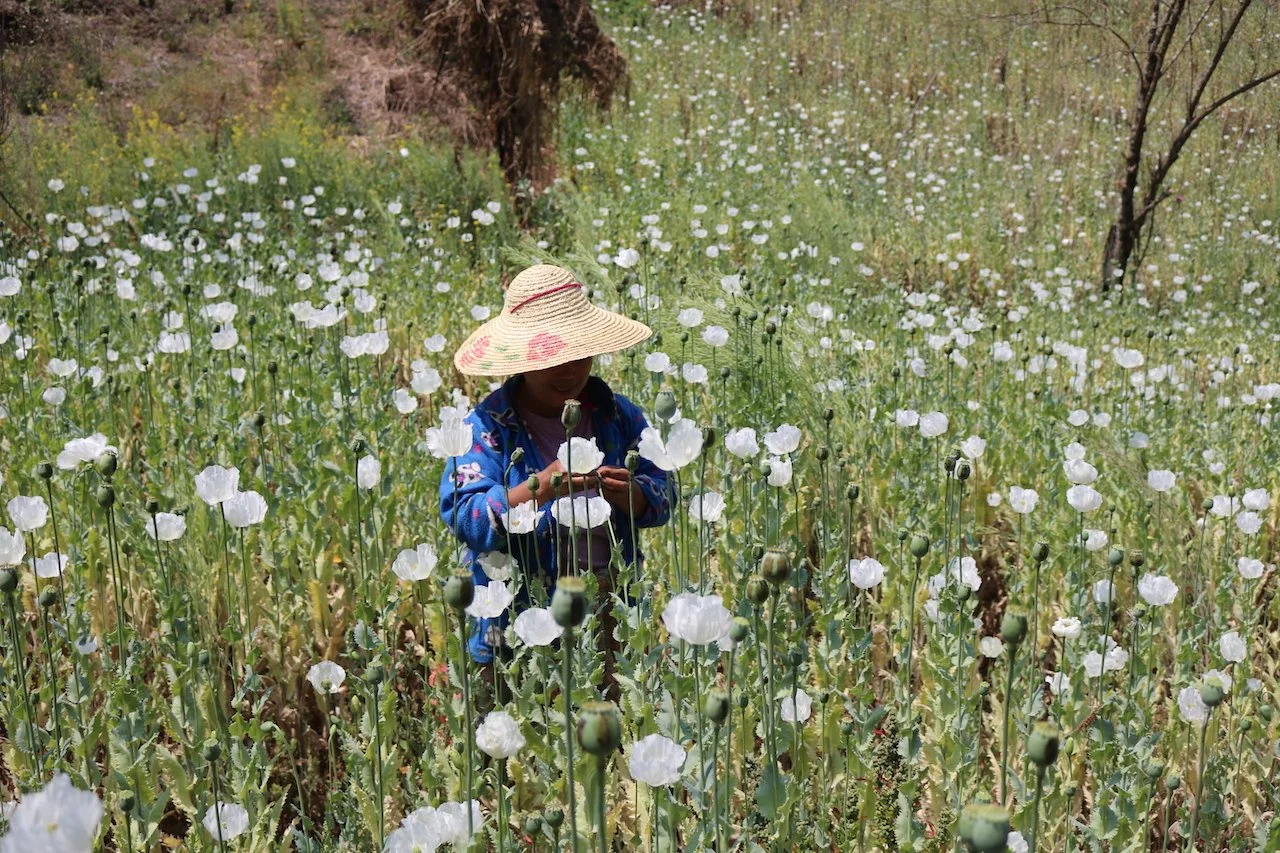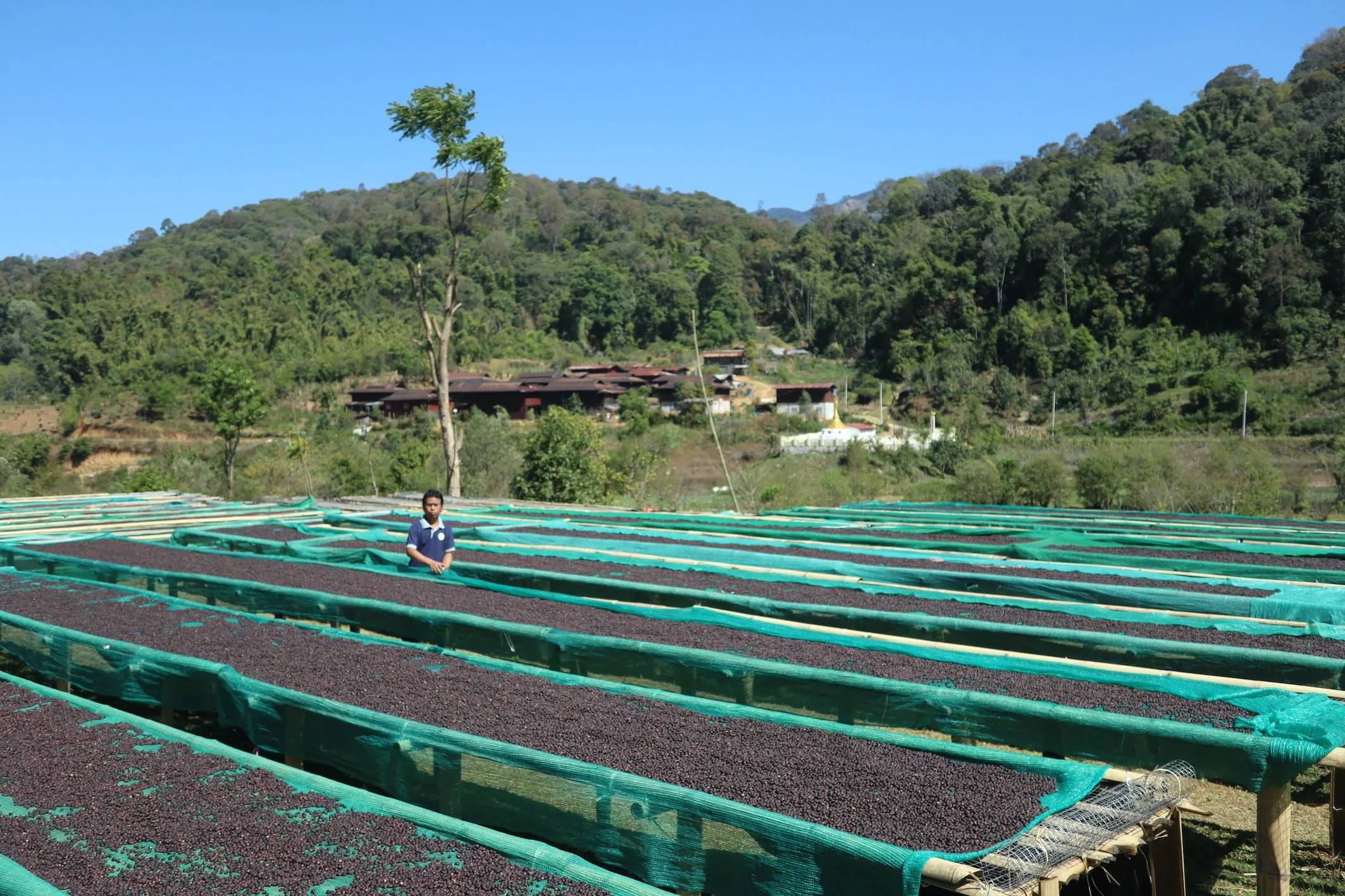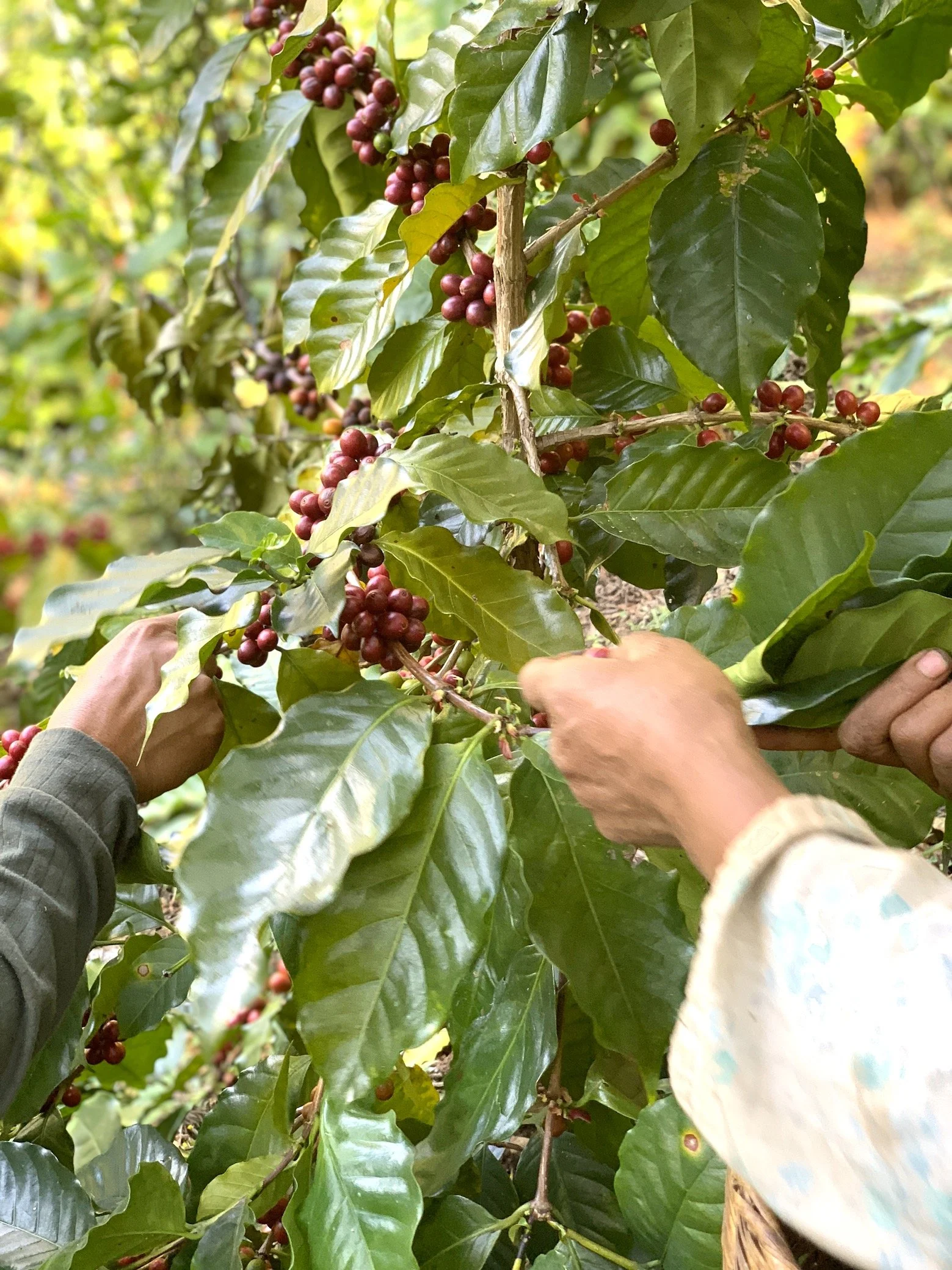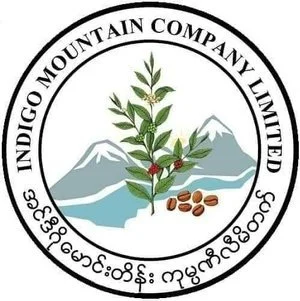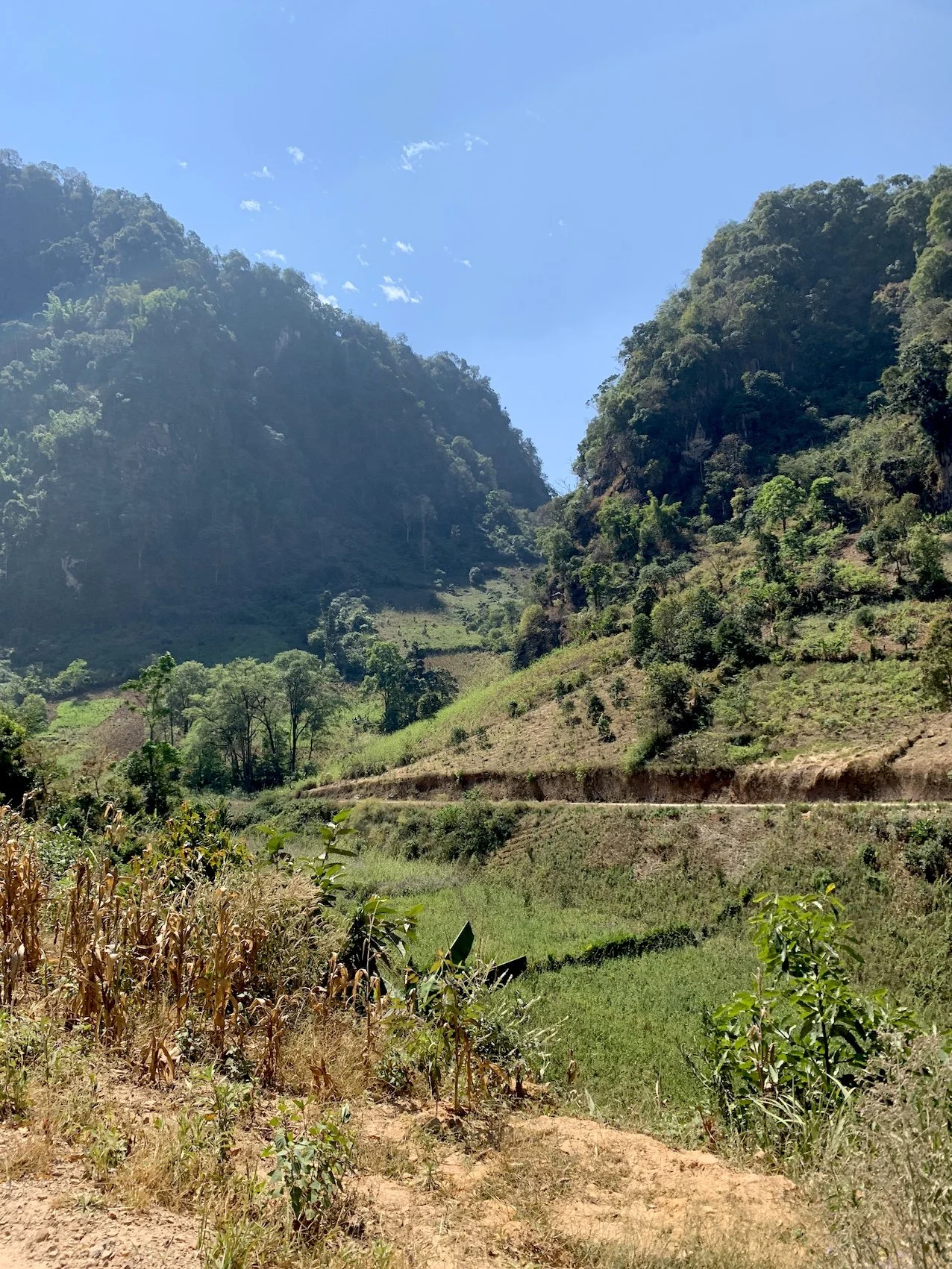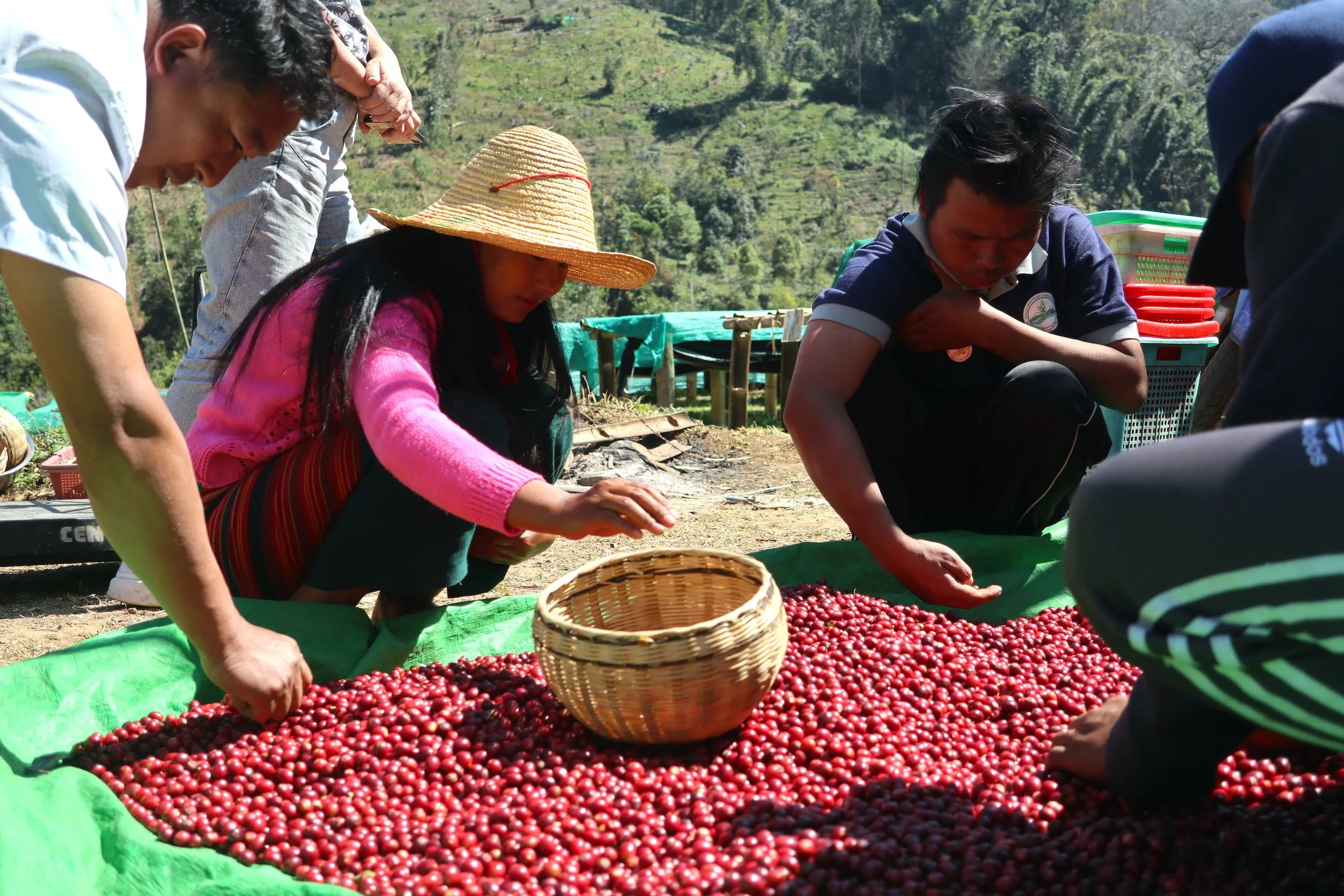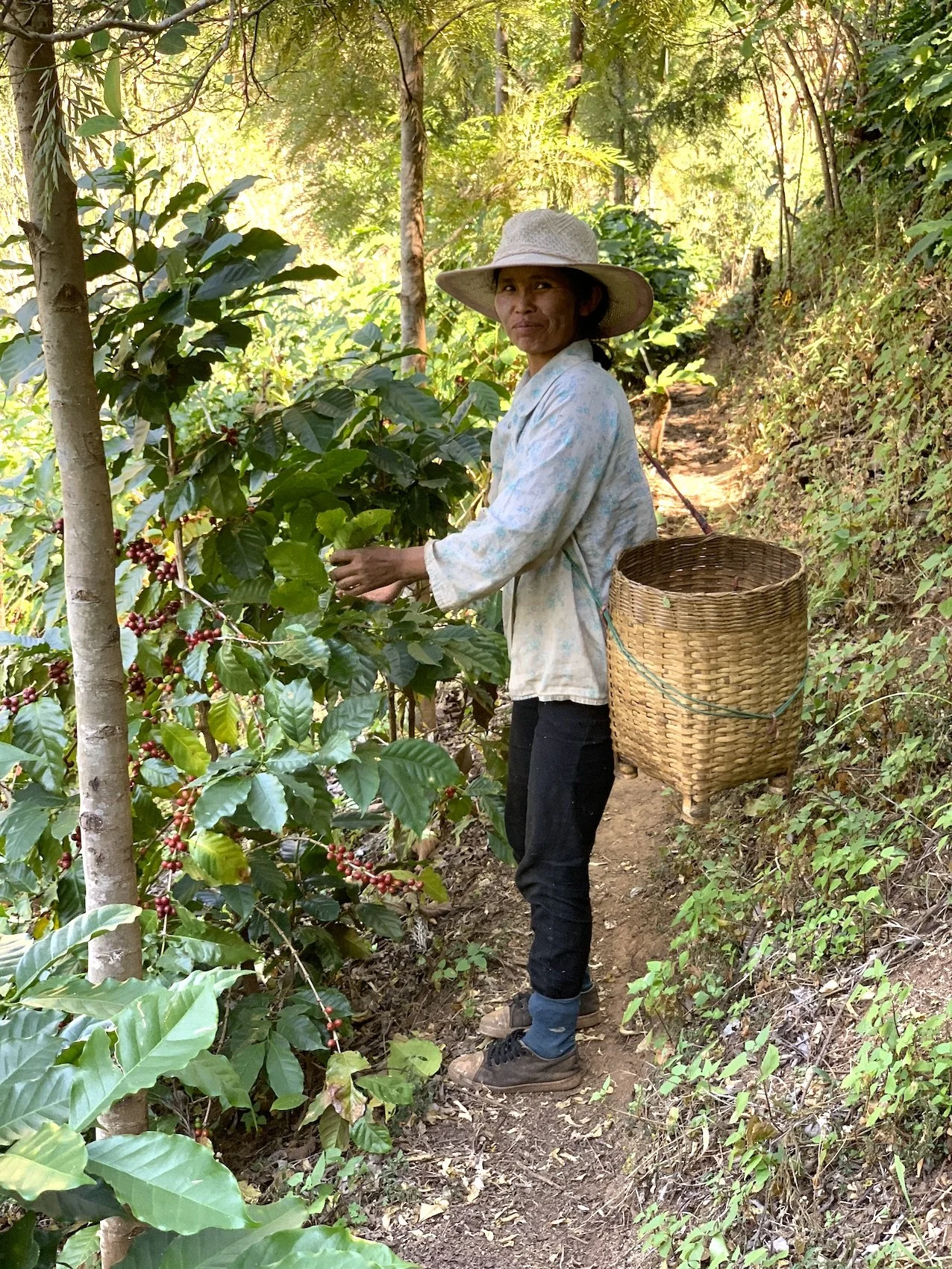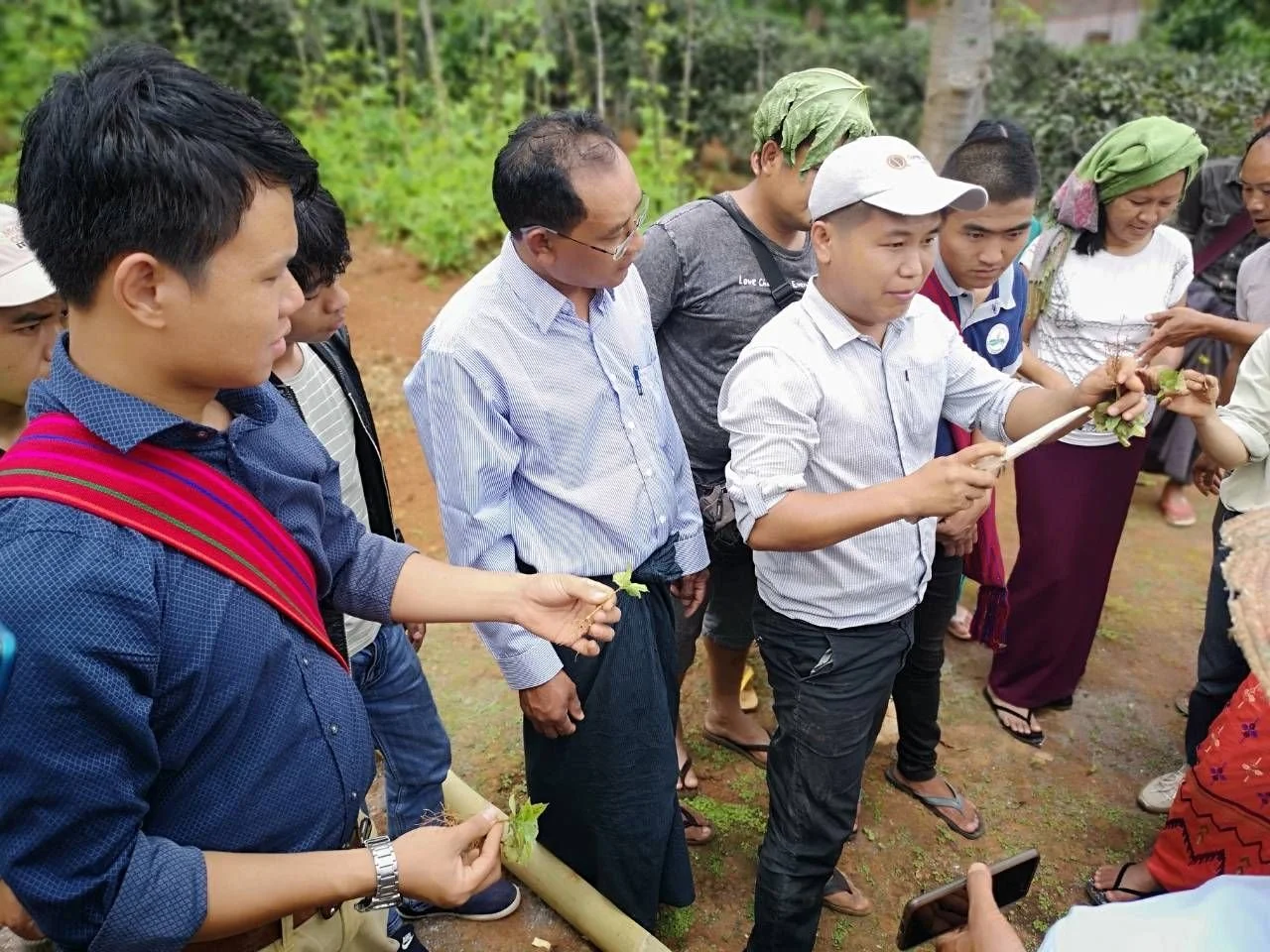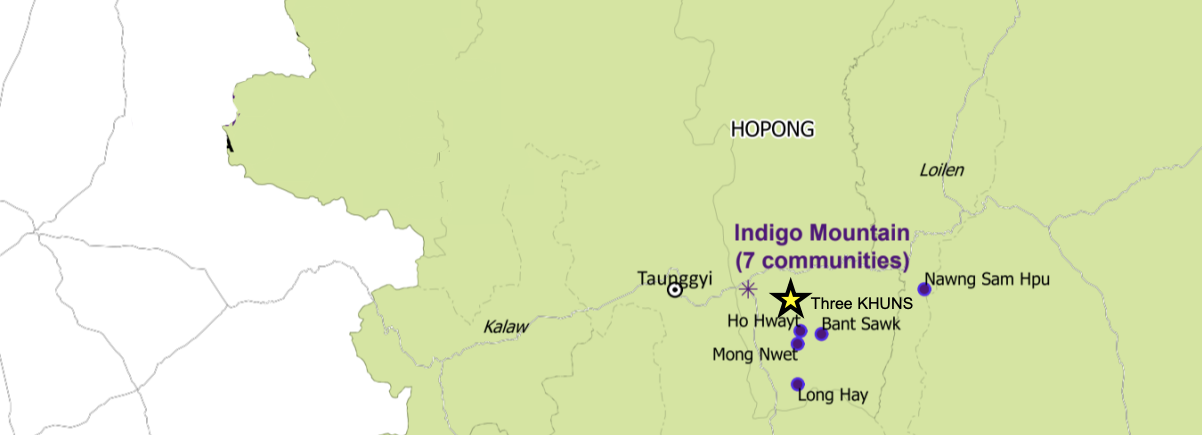
IM association
Keen to transition from illicit poppy farming, a group of farmers registered Indigo Mountain in October 2018.
Sitting on a geopolitical fault line, the Hopong Region has long seen conflict between local militias and the country’s central military. This fighting together with higher altitudes, which make very little possible to grow here, allowed cartels to take advantage by exploiting a crop that generated many smallholders’ main revenue—until now. The local leadership in the region saw the USAID-WinRock coffee program emerging and took a huge leap of faith to join in order to create higher-wage and more inclusive livelihoods for local families.
Noteworthy
Indigo Mountain became the country’s second registered community-based specialty coffee producers association, and they use a variety of processing methods including dry naturals, washed and fermentation. Around the world, however, this co-op is most renowned for its dry natural processed beans.
In 2019, our export partner Sawbwa Coffee’s pre-financing of Indigo Mountain allowed the co-op to establish a new office in Hopong and vastly increase their drying beds and processing facilities - with Indigo Mountain growing from two to six farms.
Processing Methods
Smallholders within the Indigo Mountain co-op harvest ripe cherries early in the morning, and all cherries are then brought to collection depots in each individual village. Deliveries are meticulously inspected, graded and sorted — and only fully ripe cherries (between 95% ripeness levels and above) make it onto raised drying beds. Each lot is separated by day and, after slow drying is complete to ~10% moisture levels, they are sent to Amayar Women’s Processing Facility in Ywangan for further wet and dry milling.
Available micro-lots for 2024:
Done Li Tan - Sold Out 120kg (2 bags)
Htam Pha Yar - Sold Out 120kg (2 bags)
Hti Kham - Sold Out 180kg (3 bags)
Mong Nwet - Sold Out 480kg (8 bags)
Naung Khar - Sold Out 180kg (3 bags)
Naung Sam Phu - Sold Out 600kg (10 bags)
Three Khuns Natural - Sold Out 960kg (16 bags)
Three Khuns Anaerobic - Sold Out 180kg (3 bags)
Thanks to a USAID-Winrock program, harvest and post-processing standards have been consistently high. This has allowed Indigo Mountain to produce some of the country's best specialty beans.
The name and logo of Indigo Mountain refer to the nearby "Mel Nel" Mountains that many of the high-elevation villages in Hopong Region call home.
The impressive and rugged mountains of Hopong Region reach up to over 1,700masl (5,577 ft.), with coffee-producing villages nestled in the many forests blanketing this landscape.
In all of Indigo Mountain's villages, producers screen handpicked cherries to about 95% cherry ripeness level and place these soon-to-be naturals on raised drying beds for slow drying.
The coffee harvest times up perfectly with the cool, dry season in Myanmar - which is why the terroir here produces exceptionally high-quality dry naturals unlike any other country. In 2018, Susan Heller Evenson from Atlas Coffee was the first to describe these naturals as "clean" and "sparkling" in taste - and one look at their pristine infrastructure shows you why.
The communities within Indigo Mountain co-op are fully committed to transitioning from poppy to specialty coffee production - as well as the inclusive opportunities these bring women and youth in the region.
Khun Kyaw Min Htike (white hat), a CQI-certified Arabica expert and leader for Indigo Mountain, heads many educational training programs across the region - a key factor in helping Myanmar's specialty coffee community grow.
Three Khuns, a producer consortium within Indigo Mountain, is our biggest partner for the 2024 offerings - with 960kg (16 bags) imported to the US and Canada this year.


